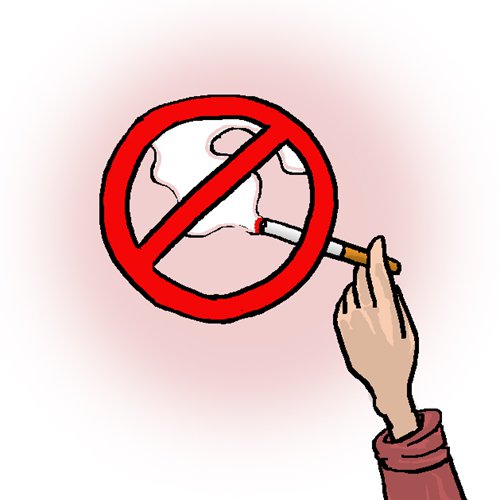- Home > News > Domestic News
- domestic news
A truly smoke-free Shanghai is an unattainable dream

Illustration: Lu Ting/GT
As a nonsmoker, I can't help but speak my mind after reading Rick Masters' recent TwoCents article "Quitting smoking starts with personal responsibility" in the Global Times Metro Shanghai. Contrary to his title, from what I've seen of Chinese smokers, their utter lack of responsibility, their shameless selfishness and a dire disregard for nonsmokers around them is why this city will never be able to enforce anti-smoking laws.
The new smoking ban in Shanghai that started in March was supposed to be the city's strictest-ever smoking ordinance. But that hasn't stopped smokers from blatantly ignoring the law. Just recently, while having dinner at a Chinese restaurant in my neighborhood, other diners at several tables all around me were chain-smoking like chimneys. The staff did and said nothing even though there were "No Smoking" stickers on the walls.
I personally have nothing against smokers. It is their freedom of choice if they want to die a slow painful death from lung cancer. But it is another matter when their smoking habits affect nonsmokers, as we all know how secondhand smoke has been proven to be even more hazardous to health than directly smoking a cig. In the example above, those inconsiderate jerks refused to take just a few seconds to step outside of the restaurant; they had no respect for anyone else nor any respect for the law.
China is of course not the only country that can't shake its smoking habit. Japan and France, for example, are also known for their millions of tobacco addicts. But self-restraint and strictly enforced laws are what sets those places apart from ours. In Japan, smokers have designated smoking boxes where they can congregate and kill each other with their secondhand smoke.
In France, where my husband is from, anyone caught smoking indoors will be fined handsomely, 450 euros ($500), while the owners of such establishments will be fined even more, at 750 euros. The latest French law even bans smoking in your own car if you have children (68 euros). "Nobody dares to smoke indoors," my husband exclaimed proudly during our recent visit to Paris.
In Shanghai, however, indoor smoking offenders are only fined a measly 200 yuan ($29.01). Restaurant owners can be fined up to 30,000 yuan, though local police officers will have to go out of their way to catch such perpetrators.
Whether a smoking ban is successful or not isn't just about how high the fines are. Rather, it is how the ban can be a deterrent to gradually change public behavior. My husband who is - surprise! - a long-term smoker, is aware of how harmful it is, and he also strongly believes that smoking indoors or forcing nonsmokers to breathe secondhand smoke is "criminal."
Cheap cigarettes in China also encourage people to take up or continue the habit. According to WHO, heavy taxation is the most effective measure in tobacco control. Cigarettes in China are still dirt-cheap compared to countries that have imposed taxation on smokers. A pack of Chinese cigarettes costs only 10 yuan, while in France they retail for 7.50 euros.
We can rightly assume that if China's government would just increase its retail tobacco tax, fewer people would be able to afford the habit, especially laborers and peasants who comprise the majority of the nation's smokers. But raising tax is a delicate matter, as the tobacco industry contributes to government coffers. In 2012, the tobacco industry paid 717 billion yuan in revenue taxes, according to a 2014 report by The Economist.
The China Tobacco Museum in Shanghai, the largest such museum in the world, has sections on tobacco history, industry and culture. Although there is a small section on control, the museum has been criticized by anti-smoking experts as glorifying the image of smoking (great leaders such as Deng Xiaoping and writer Lu Xun are depicted as avid smokers) and helping China's tobacco industry (the location of the museum on Changyang Road in Yangpu district happens to be right next to the Shanghai Tobacco Group office).
I appreciate the government's continued efforts in the war against public smoking, but it will take extremely strict enforcement, very high fines as well as education and health campaigns before Shanghai's large smoking population chooses to start taking any personal responsibility about their habits.
| Chinese Association on Tobacco Control Copyright © 1992-2011 906-907 Anhuidongli, Chaoyang District Beijing 100101 |